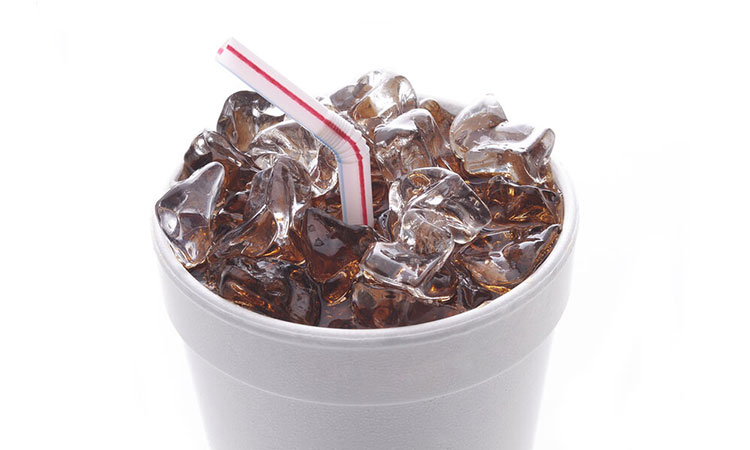
Codeine and Sprite are sometimes combined with hard candy to produce a drugged drink popularly referred to as lean, purple drank, or sizzurp.
Codeine is a prescription opiate drug that is classified as a controlled substance in the United States. It is prescribed to treat pain ranging from mild to moderate and is also effective as a cough suppressant.
Codeine, which can induce sedation and feelings of euphoria, is typically found in cough and cold formulations that may also include Tylenol or the antihistamine promethazine. Promethazine can also contribute to sedation and the impairment of motor functions.
When codeine is used in large amounts, it can lead to harmful effects. Because the drug is consumed in the form of a drinkable liquid, users can quickly lose track of how much of the psychoactive ingredients they are ingesting. This effect is primarily due to the cough syrup’s flavor being concealed by soda and candy, and this is where much of the real danger lies.
Why Is Codeine and Sprite Popular?
This concoction has been lauded as a desirable high by several high-profile celebrities, most notably musicians Lil Wayne and Justin Bieber. Lean’s fashionable media presence, particularly in the rap and hip-hop industry, has driven some young or impressionable fans to abuse it. The tragic reality, however, is that many of the celebrities who made drinking codeine and Sprite famous have experienced health problems, and for some, even death.
For example, Lil Wayne reportedly began having seizures several years ago following a prolonged history of lean misuse. DJ Screw, who also popularized the use of the drink, died of a codeine-promethazine-alcohol overdose in November 2000.
Side Effects of Codeine and Sprite
The number and intensity of side effects caused by this drug may gradually progress as a person drinks an increasing amount of codeine and Sprite. Even first-time users, however, may also encounter unpleasant side effects such as blurred vision, dizziness, nausea, and memory impairment.
The regular use of lean can also cause widespread health problems. Individuals who consume lean on a routine basis report developing tooth decay and other dental problems, as well as experiencing constipation, unwanted weight gain, and urinary tract infections.
People who engage in the long-term abuse of codeine, or use the drug in a sufficiently large amount, may also experience life-threatening complications, such as an overdose, which features respiratory depression or arrest. An overdose of lean is particularly likely when its used in conjunction with other central nervous system depressant drugs or alcohol.
Lean Drug Addiction
As noted, codeine, an opiate alkaloid, is the psychoactive ingredient in lean and is responsible for its desirable yet dangerous effects. Opiates are a class of drugs associated with a very high potential for abuse and dependence. The incredibly addictive nature of opioids is due, in part, to the pleasurable effects they induce, such as euphoria, relief from anxiety, and relaxation.
Because codeine can be legally prescribed and many people use it to treat coughing or pain legitimately, it can be challenging to track abuse rates and addiction. The chronic abuse of opioids can rapidly lead to the development of drug tolerance or dependence. As tolerance increases, people often find themselves needing to use higher amounts of the drug to experience the desired effects.
This escalation in drug-using behavior can be the catalyst for the development of physiological dependence. Opioid-dependent persons are then likely to encounter a number of unpleasant withdrawal symptoms when they attempt to cut back or discontinue drug use.

In the early stages of drug withdrawal, the person may experience:
- Sleep disturbances
- Agitation
- Muscle aches and pains
- Teary eyes and runny nose
- Anxiety or depression
- Sweating
If a person has consumed Lean for an extended period or in very high doses, they may experience more severe withdrawal effects, including nausea and vomiting, stomach cramps, and diarrhea.
To prevent, stop, or delay the onset of withdrawal symptoms, people addicted to codeine and Sprite will often relapse, or return to drinking it or use other opioid drugs. This behavior then continues to perpetuate an endless cycle of abuse that can devastate a person’s mental and physical health.
Treatment for Codeine Addiction
To avoid or reduce the unpleasant symptoms associated with withdrawal caused by codeine addiction, many people choose to undergo a medical detox and then immediately enroll in an addiction treatment program.
Treatment often includes two formats or phases – partial hospitalization and intensive outpatient treatment. Both programs employ evidence-based approaches to substance abuse treatment, including behavioral therapy, individual and family counseling, psychoeducation, and support groups.
During treatment, professional staff who specialize in addiction care for patients and provide them with the education, skills, and support they need to navigate a drug-free life after treatment has been completed.
Midwood Addiction Treatment can help you reclaim your life, free of addiction to drugs and alcohol! Please contact us today to find out how we can help you on your journey to recovery!